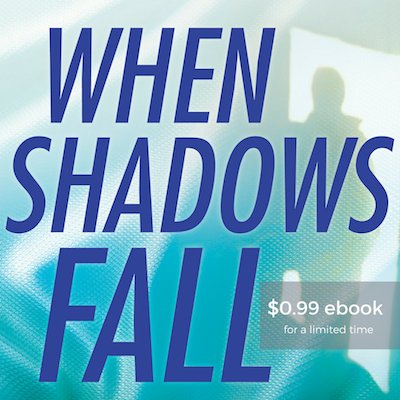5.5.16 - On The Relentless Pursuit of Perfection
/
From the time I was able to hold a pencil and write, perfection was my friend, and mistake my enemy.
It was a paralyzing combination.
I wanted to be an artist, but when faced with a blank sheet of paper, I was terrified. Not with fear that I couldn’t draw, couldn’t create. I knew I could. No, my fear was I would ruin the pristine paper with a line out of place, and I’d have to throw it away.
I would have ruined the paper with a mistake.
When I realized writing was a simpler thing for me than drawing, I had the same issue. If I misspelled a word, or miswrote a word, that was it. The paper was ruined, and I had to start over.
Nothing but perfection was (*ahem* is) acceptable.
This holds true for most everything I do, all these years later. Now I understand that this urge for perfection is a manifestation of OCD, and I find ways to push past the early paralyzing moments when faced with blank pages. For new novels, I have a formula for starting. This includes building a book journal, building a file, naming the book, putting together epigraphs… little things that mean the pages aren’t entirely blank.
But that’s easy to do when you’re in a computer screen. When you’re doing it by hand, it’s a whole different story.
All these years later, I’m still always terrified that I’m going to make a mistake on that first page and have to rip it out and start over. Trust me, there are a number of notebooks in my house with a first page missing.
I’ve been examining these urges lately, because I came across something interesting. It’s a story about how dependent we’ve become on the Cloud, and how we’re losing a lot of our history because everything is typed on computers.
Thinking about this, I had a realization. This is directly related to how we’re so carefully curating our lives for one another. If you think about it, we are always striving for perfection in our written work, so much so that we’ve become dependent on spellcheck and grammar checks, and nothing that makes it to public consumption hasn’t been edited to death.
What are we losing by working electronically? What bits of genius, or specialness, are we losing when we can so easily delete and write something fresh?
Not only are we curating our lives for one another, we’re curating our thoughts… for ourselves.
Whether your desire to have a clean, perfect document is pathological or simply a result of the way you want to present yourself to the world, we are eliminating some of our finest work when we edit ourselves online, on the computer screen, in our writing programs.
Think of what we’re losing? That original thought, that original impetus, the original words, edited into coherent [[thoughts]]… *
*I JUST did it. I saw the words “thoughts”, and even though it’s correct, I immediately backward deleted to come up with something else, something unique that isn’t a repetitive word. It’s instinct; I do it without thinking. Which makes me wonder: How much do I delete throughout a day? I don’t keep track of how many words I type in a day, I keep track of the end product. At the end of the day, I have X number of words.
What if I didn’t delete and rewrite? What if I was forced to write by hand, in a notebook, and had a record of all those words I decided weren’t right, weren’t correct, were misspelled?
I’ve always wanted to write a book by hand. I do a lot of handwritten work already, from journals to note taking to planning and processing ideas. Could I stand to write a whole story by hand? Could I stand the XXed out words, the arrows drawn to realign paragraphs, the hundreds of mistakes I make in a day of writing? Moreover, how many words am I REALLY writing in a day? I’d bet I write two to three times as much as is recorded at the end of the day, trying out sentences, trying ideas, words, themes. I immediately delete when something isn’t working.
What if I stopped doing that?
We’re talking a monstrous sea change for me. For us all. Paper isn’t the precious commodity it used to be. Ink and pens are easy to work with. I don’t know that I could give up my laptop—the ideas seem to go through my brain directly into my fingers onto the page, without stops or bypasses, and I don’t feel that flow when I’m writing by hand.
But it’s doable. It’s totally doable.
And I would have a record—a real record, a true record—of the words. It wouldn’t be perfect, and all that markup would probably give me hives, but it’s something worth thinking about. At the very least, I’m going to try and be more intentional about how I self-edit.
In the next few weeks, look for a few more posts with the theme of perfection stifling our art. It’s something I really want to explore.
So….
What say you? Are we losing our culture to autocorrect and spell check and the keyboard? Do you write by hand or by keyboard?


















